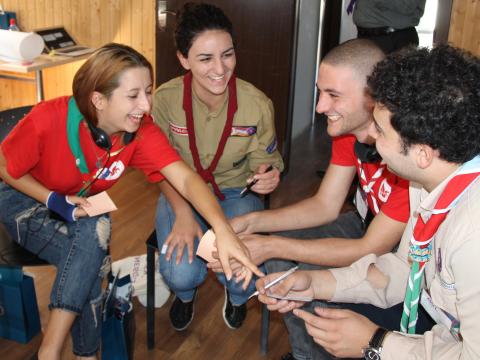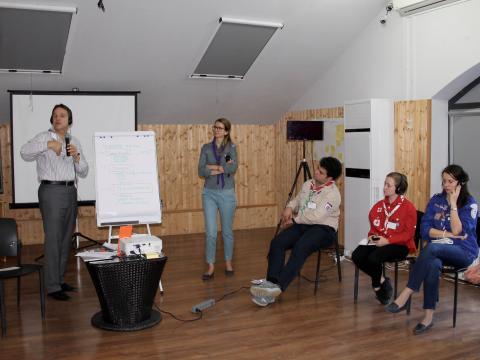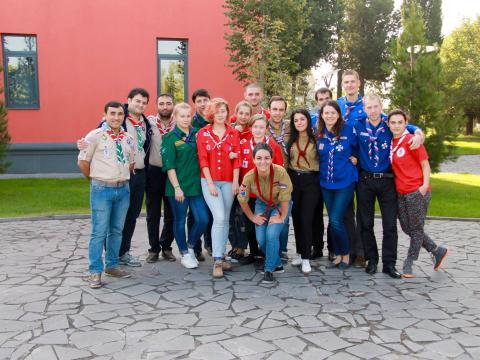Creating New Bonds Through Dialogue

It was a very sunny yet chilly day at the International Scout Centre Rustavi (ISCR) in southeast Georgia. For many, it seemed like any other first day in a Scout workshop, but for some of the 17 participants, it was their first international experience. Most of the Scouts leaders representing National Scout Organizations (NSO) of Armenia, Azerbaijan, Georgia, Kazakhstan and Russia, met each other in person for the first time.

The first day of the workshop was about discovering what unites people, even if they come from different backgrounds and ethnicities, or practise different religions. During the ‘Dialogue Mosaic’, participants Maxim, Sergei, Agil, Anna and Andranik were able to identify at least ten things they had in common. ‘Initially, we did not expect to have anything in common but after sharing more about ourselves we discovered that we actually share some things in common,’ said Maxim.
By the end of the first day, they learned how perceptions and misperceptions can lead to conflict. They also learned how people use specific styles to manage conflicts and how this awareness can help move conflict to reconciliation. At dinner, they shared their impressions and experiences of interacting with participants from different countries.
Dialogue was the central topic of the second day. Participants learned what dialogue is, and what it is not, and participated in a dialogue circle facilitated by Doina Postica from the Eurasia Dialogue team. The dialogue circle allowed participants to talk openly about migration, ethnicities and stereotypes related to their national identity.
These are all current and sensitive issues for young people in Eurasia, but when addressed in an environment of trust, openness and listening without judgement, it was easier to listen to a different point of view with a compassionate attitude, and with the purpose of learning about the other person’s thoughts.
But how is it possible to talk about sensitive issues with an open mind? Under the gentle guidance of Prof. Patrice Brodeur from the International Dialogue Centre (KAICIID) they were introduced to the main principles of dialogue and started to embrace it as a way of living.
The first step involved developing the capacity for inner dialogue and compassionate listening. These two skills enable one to be able to 'turn off' judgement and observe the events happening around her/him in a more objective way. This also allows one to develop trust and to be open to others’ needs. By practising these skills the participants opened themselves to considering different perspectives and transforming their views without fear, thus contributing to their personal growth. Additionally, by also practising inner dialogue, they were able to calmly and objectively observe the facts and emotions they felt. They were able to communicate their needs and listen to others taking the first steps towards building mutual trust.
On the last day of the workshop, everybody mingled. Nationalities and stereotypes did not matter as much as the strong bond of friendship and trust that was built among them. Some of the most inspiring closing remarks came from Anushik who said, ‘Dialogue and this training helped us to forget about conflicts between countries’.
The workshop was a step towards social cohesion and international friendship, enabling young people to discover shared values. It was made possible by WOSM Dialogue for Peace Programme team, KAICIID and the Eurasia Scout Region staff, who also made this training an event to remember.



